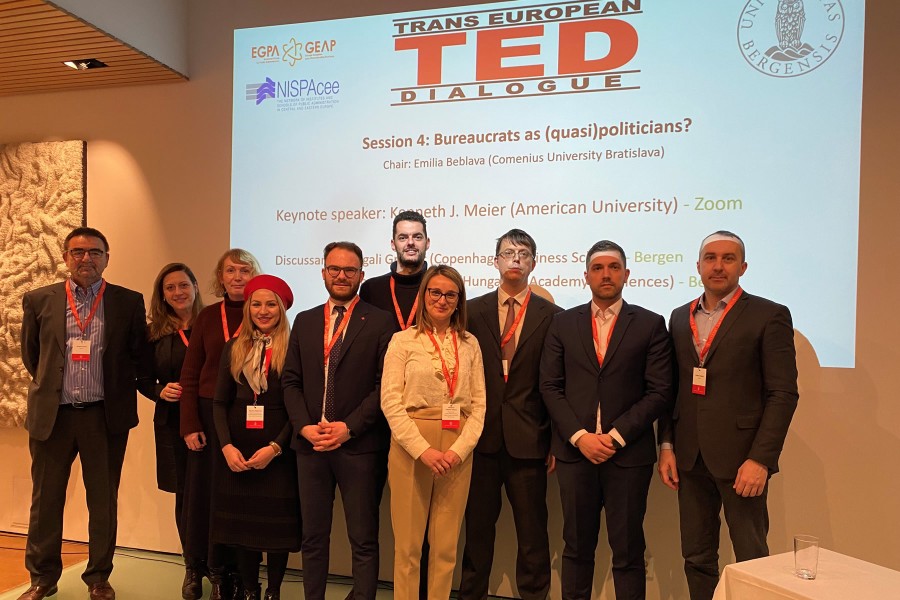
Public servants from ReSPA Members attend the 2022 Trans European Dialogue 24-25 February 2022
Selected public servants from the Western Balkans attended on 24-25 February the Trans European Dialogue (TED) Conference 2022, held this year in Bergen, Norway, focusing on “Bureaucratic Transformations: Longitudinal Perspectives on Local and (Supra) National Public Administration”.
ReSPA enabled the participation of public servants from ReSPA Members in this event, upon invitation by the University of Bergen, in the frame of the ReSPA cooperation with the Network of National Institutes and Schools of Public Administration in Central and Eastern Europe (NISPACee).
During the conference, it was discussed that staff attitudes toward public sector reforms and, particularly, the impact of reforms on staff attitudes had received much less attention in recent years. It was emphasized that change is difficult to be introduced in the public administration, while some administrations have lost the connection with the citizens. In addition, it was mentioned that the failure of reforms de-motivates the public servants, and it should be avoided to blame public servants for the failure of reforms.
One of the sessions that arose lots of discussions was the one related to public administration in a time of crisis. According to the discussion, the time of crisis is a perfect time to change the tune and modus operandi of the administration. Given this “game-changing” nature of turbulent problems, discussants examined whether, when and how major disruptive events call for new governance solutions, new forms of public administration leadership, and new forms of organizing public service delivery. Representatives from ReSPA members presented how covid-19 affected the public administrations in the Western Balkans, emphasizing the strong focus on digitalization and service delivery. They also raised a topic of discussion on the extent that public officials have been able to continue performing their work during the pandemic, from home, through teleworking.
A special session was devoted to lobbying towards public officials. It was mentioned that policy-makers may depend on lobbyists for information and decision-making, and this relationship may distort lines between lobbyists and policy-makers, thus putting citizens’ interests in shadow and increasing the potential for clientelism.
Participants from ReSPA members were actively engaged under each session, with presentations, questions, comments and discussions.



